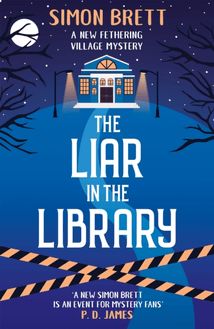-
 Univers
Univers
-
 Ebooks
Ebooks
-
 Livres audio
Livres audio
-
 Presse
Presse
-
 Podcasts
Podcasts
-
 BD
BD
-
 Documents
Documents
-
- Cours
- Révisions
- Ressources pédagogiques
- Sciences de l’éducation
- Manuels scolaires
- Langues
- Travaux de classe
- Annales de BEP
- Etudes supérieures
- Maternelle et primaire
- Fiches de lecture
- Orientation scolaire
- Méthodologie
- Corrigés de devoir
- Annales d’examens et concours
- Annales du bac
- Annales du brevet
- Rapports de stage
La lecture à portée de main
Vous pourrez modifier la taille du texte de cet ouvrage
Découvre YouScribe en t'inscrivant gratuitement
Je m'inscrisDécouvre YouScribe en t'inscrivant gratuitement
Je m'inscrisEn savoir plus
Vous pourrez modifier la taille du texte de cet ouvrage
En savoir plus

Description
Informations
| Publié par | Canongate Books |
| Date de parution | 05 novembre 2020 |
| Nombre de lectures | 1 |
| EAN13 | 9781838853846 |
| Langue | English |
Informations légales : prix de location à la page 0,0240€. Cette information est donnée uniquement à titre indicatif conformément à la législation en vigueur.
Extrait
Simon Brett worked as a producer in radio andtelevision before taking up writing full-time. He wasawarded an OBE in the 2016 New Year’s Honours forservices to Literature and also was elected a Fellow ofthe Royal Society of Literature. In 2014 he won theCWA’s prestigious Diamond Dagger for an outstandingbody of work. simonbrett.com
Also by Simon Brett The Fethering Mysteries Bones Under the Beach Hut Guns in the Gallery The Corpse on the Court The Strangling on the Stage The Tomb in Turkey The Killing in the Café The Liar in the Library The Charles Paris Theatrical Series Dead Room Farce A Decent Interval The Cinderella Killer A Deadly Habit The Mrs Pargeter Mysteries Mrs Pargeter’s Point of Honour Mrs Pargeter’s Principle Mrs Pargeter’s Public Relations
The paperback first published in Great Britain, the USA and Canada in 2020by Black Thorn, an imprint of Canongate Books Ltd,14 High Street, Edinburgh EH1 1TE Distributed in the USA by Publishers Group West and in Canada by Publishers Group Canada First published in 2019 by Severn House Publishers Ltd, Eardley House, 4 Uxbridge Street, London W8 7SY This digital edition first published in 2020 by Canongate Books blackthornbooks.com Copyright © Simon Brett, 2019 The right of Simon Brett to be identified as theauthor of this work has been asserted by him in accordancewith the Copyright, Designs and Patents Act 1988 This is a work of fiction. Names, characters, places and incidentsare either the product of the author’s imagination or are used fictitiously.Except where actual historical events and characters are beingdescribed for the storyline of this novel, all situations in this publication arefictitious and any resemblance to actual persons, living or dead,business establishments, events or locales is purely coincidental. British Library Cataloguing-in-Publication Data A catalogue record for this book is available on request from the British Library ISBN 978 1 83885 383 9 eISBN 978 1 83885 384 6
Contents
Chapter One
Chapter Two
Chapter Three
Chapter Four
Chapter Five
Chapter Six
Chapter Seven
Chapter Eight
Chapter Nine
Chapter Ten
Chapter Eleven
Chapter Twelve
Chapter Thirteen
Chapter Fourteen
Chapter Fifteen
Chapter Sixteen
Chapter Seventeen
Chapter Eighteen
Chapter Nineteen
Chapter Twenty
Chapter Twenty-One
Chapter Twenty-Two
Chapter Twenty-Three
Chapter Twenty-Four
Chapter Twenty-Five
To the hope that,
in my next incarnation,
I ll be able to sing
EPITAPH ON AN AMATEUR SOPRANO
Her final note has now been sent,
Her final chord s undone.
After life s gloom, death should present
Her moment in the sun.
Alas, she has the worst of fates -
She must in Limbo stay
And wait outside the Pearly Gates
For ever and a day.
She s not shut out because of sin.
Her virtue s plain to see.
It s just she never knew when to come in,
And could never find the key.
ONE
T he trouble is, thought Carole Seddon peevishly, that no one knows any of the old hymns any more. Though devoutly anti-religious, she did have standards when it came to certain matters of British tradition. And she was strongly of the view that children should be brought up to know the basic repertory of hymn tunes that she d had to learn at their age.
Carole was not a frequent visitor to All Saints Church in the village of Fethering. Lack of faith precluded regular Sunday attendance and, as a divorced woman in her fifties, she was not invited to many weddings or christenings. So, it was just funerals, really. And it was a funeral that had brought her to All Saints that Thursday morning in late February.
She had not known the deceased, Leonard Mallett, well, nor liked him very much. Of his professional career, in the world of insurance, she knew nothing. But they had both been on the same committee, which he had chaired, for the Preservation of Fethering s Seafront. Though the group only met a couple of times a year, Carole had found out through the local grapevine that most of the other members would be attending the funeral. So, after the disproportionate amount of soul-searching that she brought to every social situation, she d decided she ought to join them. Though Leonard himself was obviously beyond being offended, and Carole hardly knew his wife Heather, she still felt the danger that her absence might be interpreted as some kind of snub (unaware of the more likely truth that it simply wouldn t be noticed).
So, she was there in the church. Though there are many beautiful old churches in West Sussex, some dating back to Saxon times, All Saints Fethering was not one of them. It had been built by the Victorians in dour dark red brick and seemed somehow too high and cavernous ever to feel welcoming. As with every such institution in the country, the age of its dwindling congregation mounted with each passing year, and there didn t seem to be many young people leaping in to replace those called to a Higher Place.
Leonard Mallett s funeral, however, had very nearly filled the church. Despite arriving characteristically early, Carole had been ushered into one of the side pews. This vantage point, though not in the favoured central block, gave her a good view of the altar and choir stalls, and of the trestles on which the deceased s coffin would shortly rest.
At the door, she had been handed an order of service. A quick glance through its contents revealed no surprises. The hymns were totally predictable. As were the readings, even down to the inevitability of Joyce Grenfell s If I should die before the rest of you and Henry Scott Holland s one about having slipped away to the next room . (Carole had nothing against either of them as poems; she just wished people might occasionally choose something else. But funerals were rare and stressful events for most people, so perhaps it was too much to hope for originality.)
On the order of service s cover there was a colour photograph of Leonard Mallett. Characteristically unsmiling, he wore the frustrated expression of a man who wasn t at that moment getting his own way. It was not a face that inspired affection.
But something about the man had inspired the healthy turnout for his funeral. There were a few Fethering regulars, some members of the Seafront committee, to whom Carole gave minimal nodding acknowledgement, but most of the congregation were unfamiliar to her. Presumably people from Leonard s former London life, senior managers from the world of insurance, who had ventured down to the South Coast to pay their dutiful respects in the forbidding draughtiness of All Saints Fethering.
Somehow, to Carole, the church s bleak austerity felt appropriate for the funeral of someone she had hardly known.
In Fethering, of course, the fact that you hardly knew someone didn t mean that you were totally ignorant of their circumstances. Gossip could be relied on to generate an extensive dossier, based on some fact and much conjecture, about every resident of that South Coast village. And, although Carole had received none of the information from the man himself, she knew that Heather was Leonard Mallett s second wife, though it was a first marriage for her. They d had no children together, but he had a daughter with his first wife, who had subsequently died (though nobody knew exactly when). The girl was called Alice. She was rumoured to be an actress who didn t get much work, but who lived quite comfortably in London on an allowance from her father.
Fethering gossip had it that Alice was engaged to be married. It also said that she didn t get on with her stepmother. Though there was evidence about the forthcoming wedding, because it was due to take place at All Saints, the bit about tensions between the two women was pure speculation. But then Fethering gossip always tended to go for the rather simplistic fairy-tale interpretation of family relationships. It wouldn t entertain the idea of a stepmother and stepdaughter who got on well together.
Leonard Mallett was said to have been some fifteen years older than his second wife. He had moved to the village, into a large house called Sorrento on the exclusive Shorelands Estate, towards the end of a long and lucrative career bossing people about in insurance. After a few years of daily commuting to London, he had devoted his retirement to bossing people about in Fethering. It was on his initiative that the Preservation of Fethering s Seafront committee had been set up, and the fact that he had persuaded Carole Seddon, not by nature a joiner of anything, to become a member, was a measure of his bossing skills.
She had not enjoyed his hectoring manner at meetings, but could not fault the fact that he had set up the committee. On her morning walks with her Labrador, Gulliver, she had become increasingly aware of the pollution affecting Fethering Beach. Every day s tides deposited more tar-soiled plastic items on the shoreline. And tourists seemed deliberately to avoid the litter bins on the prom, preferring to scatter their burger boxes, polystyrene chip trays and ice-cream wrappers directly on to the ground. As she grew older, and perhaps since she had been blessed with two granddaughters, Carole had become increasingly worried about the legacy of pollution being bequeathed to future generations.
Fethering gossip s dossier on Heather Mallett was less detailed than the one it had compiled on her husband. This was in part because she was rarely seen around the village. Though Leonard was a constant and loud presence at all Fethering events, and particularly in its only pub, the Crown & Anchor, his wife kept herself to herself. She was rarely to be seen shopping on the Parade. Presumably, she favoured the large anonymous supermarkets, like Sainsbury s in Rustington, over the local outlets. The only guaranteed sightings of her in the village were at church on Sundays, and at Friday rehearsals for the All Saints choir, of which she was a diligent
-
 Univers
Univers
-
 Ebooks
Ebooks
-
 Livres audio
Livres audio
-
 Presse
Presse
-
 Podcasts
Podcasts
-
 BD
BD
-
 Documents
Documents
-
Jeunesse
-
Littérature
-
Ressources professionnelles
-
Santé et bien-être
-
Savoirs
-
Education
-
Loisirs et hobbies
-
Art, musique et cinéma
-
Actualité et débat de société
-
Jeunesse
-
Littérature
-
Ressources professionnelles
-
Santé et bien-être
-
Savoirs
-
Education
-
Loisirs et hobbies
-
Art, musique et cinéma
-
Actualité et débat de société
-
Actualités
-
Lifestyle
-
Presse jeunesse
-
Presse professionnelle
-
Pratique
-
Presse sportive
-
Presse internationale
-
Culture & Médias
-
Action et Aventures
-
Science-fiction et Fantasy
-
Société
-
Jeunesse
-
Littérature
-
Ressources professionnelles
-
Santé et bien-être
-
Savoirs
-
Education
-
Loisirs et hobbies
-
Art, musique et cinéma
-
Actualité et débat de société
- Cours
- Révisions
- Ressources pédagogiques
- Sciences de l’éducation
- Manuels scolaires
- Langues
- Travaux de classe
- Annales de BEP
- Etudes supérieures
- Maternelle et primaire
- Fiches de lecture
- Orientation scolaire
- Méthodologie
- Corrigés de devoir
- Annales d’examens et concours
- Annales du bac
- Annales du brevet
- Rapports de stage













